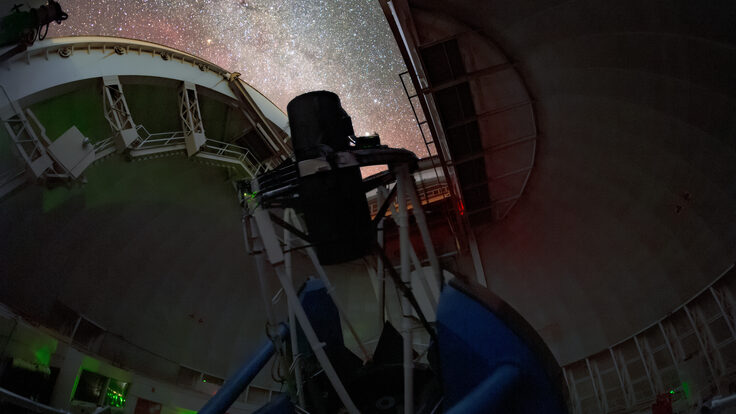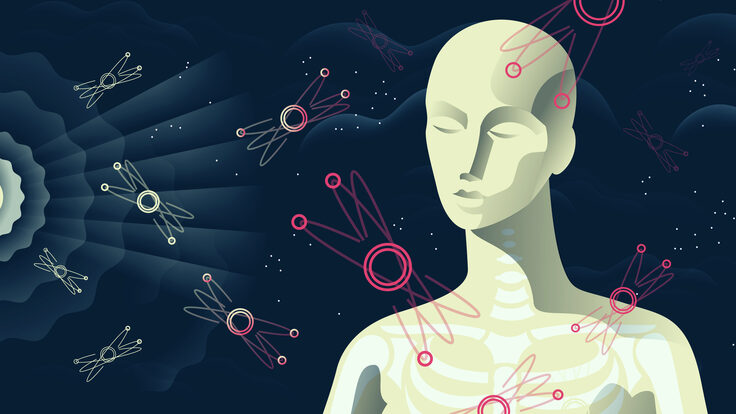Young researcher tackles world's biggest camera
 |
| David Lawrence with his Brookhaven mentor, Paul O'Connor Photo: Joe Gettler |
When David Lawrence joined the Brookhaven High School Research Program at age 15, he said he wanted a project challenging enough to catch the attention of the judges at the Intel Science Talent Search.
He got one, thanks to Paul O'Connor, one of his Brookhaven National Laboratory mentors.
Brookhaven was developing next-generation charge-coupled devices, or CCDs, which capture photons of light and convert them to digital images. Souped-up versions of the CCDs in ordinary digital cameras, they will enable the world's biggest digital camera, part of the Large Synoptic Survey Telescope, to photograph the Southern Hemisphere sky every three nights.
It's a big sky, so the camera needs a field of view wide enough to span seven full moons. To tackle the many technical challenges involved, “You have to unfold many confounding effects,” O'Connor says.
That's where David Lawrence came in. “He developed a new way of looking at the statistical properties of a big set of pictures,” O'Connor says, “and he was able to home in on the uncertainties. David's programming skills are so superb that he was able to crunch the numbers in a very efficient manner.”
Lawrence's work earned the respect of his LSST colleagues and caught the attention of the Intel judges, who named him a semifinalist in the annual Talent Search. He also earned a First Place in Physics at the 2010 Long Island Science and Engineering Fair.
Lawrence himself remains down to earth. “It was a lot of fun. I was already familiar with all of the equipment, so I could just jump in and start coding and researching right away,” he says of his final summer at Brookhaven. “I also had the opportunity to serve as a sort of ‘associate mentor' for one of the new summer students, which was a new experience for me.”
Now he has another new experience: his first term at MIT, where he's pondering a double major in computer science and mathematics.
Lori Ann White
Click here to download the pdf version of this article.






